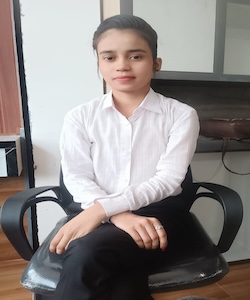Balancing Board Exams and Competitive Exams: Preparing for Board Exams while also targeting competitive exams (like NEET, JEE, CUET, SSC, etc.) can be overwhelming. Both require different strategies—board exams test conceptual clarity and writing skills, while competitive exams emphasize speed, accuracy, and application-based problem solving. The key is time management, planning, and smart preparation.

Understand the Differences
| Basic of Difference | Board Exams | Competitive Exams |
| Focus | NCERT / prescribed textbooks | Application of concepts (beyond NCERT in some cases) |
| Question Type | Descriptive, step-by-step | Objective (MCQs) |
| Evaluation | Detailed explanations and presentation | Accuracy + Speed |
Balanced Study Plan
- Dedicate 60–70% of study time to board syllabus (especially 3–4 months before boards).
- Keep 30–40% of study time for competitive exam practice (mock tests, MCQs, problem-solving).
- Use integrated preparation: study a topic from NCERT (boards) and then solve MCQs (competitive).
Smart Study Techniques
- NCERT First: For science/math subjects, NCERT is essential for both boards & competitions.
- Short Notes & Formula Sheets: Create quick revision material for both exams.
- Daily MCQ Practice: Even 1–2 hours of practice keeps you in touch with competitive exam patterns.
- Previous Year Papers: Solve both board and competitive papers to understand the exam mindset.
Time Management
- Before Boards (Oct–Jan): Focus more on boards (70%) and keep touch with MCQs (30%).
- After Boards (March–Exam): Shift focus fully to competitive exams with intensive revision & test series.
- Weekly Plan:
- Weekdays → Board-oriented study + 1–2 hrs MCQs
- Weekends → Full-length mock tests for competitive exams
- Weekdays → Board-oriented study + 1–2 hrs MCQs
Health & Stress Management
- Take short breaks to avoid burnout.
- Sleep at least 6–7 hours.
- Practice mindfulness, yoga, or light exercise to stay calm.
- Stay positive—don’t compare your progress with others.
Tips for Specific Subjects
- Physics/Chemistry: Learn NCERT for theory (boards) → Practice numerical & MCQs (competitive).
- Mathematics: Step-wise solutions (boards) → Fast problem-solving tricks (competitive).
- Biology: NCERT diagrams & explanations (boards) → Line-by-line NCERT-based MCQs (competitive).
- Languages (Boards): Dedicate limited fixed time weekly, focus on grammar, essay, unseen passages.
Quick Revision Strategy
- One Week Before Boards → Revise NCERT, focus on answer writing.
- One Month Before Competitive Exam → Solve mocks daily, analyze mistakes, revise weak areas.
Conclusion
Balancing both exams is about synergy, not separation. If you master NCERT for boards and practice MCQs regularly, you’ll automatically prepare for both. Balancing Board Exams and Competitive Exams is the art of combining preparation smartly without duplicating effort. The key lies in consistent effort, smart scheduling, and self-belief.
Read More:
FAQs
1. Is it possible to score well in both boards and competitive exams?
Ans: Yes. Many toppers follow integrated preparation—strong NCERT base helps in both.
2. Should I join separate coaching for boards and competitive exams?
Ans: Not necessary. If your coaching covers competitive exams, manage board prep through self-study and NCERT-focused revision.
3. What if board and competitive exam dates clash?
Ans: Prioritize boards during exam week, but keep solving MCQs in free time. After boards, switch 100% to competitive exam prep.

My self Anita Sahani. I have completed my B.Com from Purbanchal College Silapathar. I am working in Dev Library as a Content Manager. A website that provides all SCERT, NCERT 3 to 12, and BA, B.com, B.Sc, and Computer Science with Post Graduate Notes & Suggestions, Novel, eBooks, Health, Finance, Biography, Quotes, Study Materials, and more.

